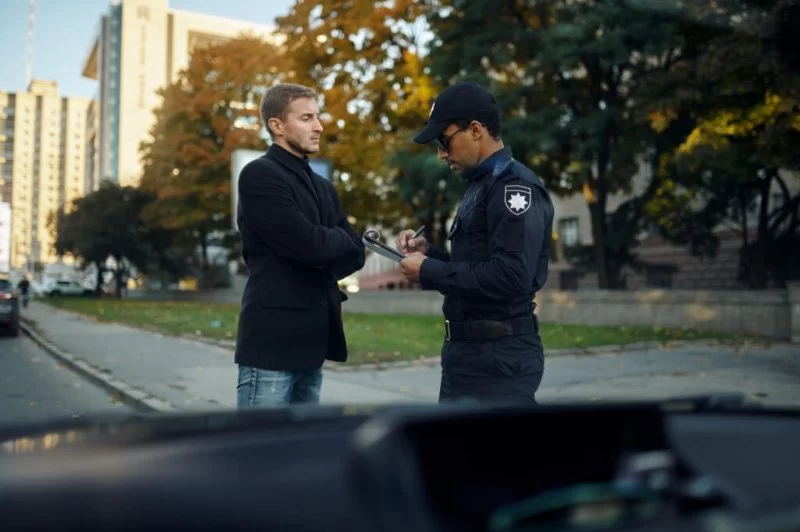
- 1 - Understanding your rights when stopped by the police
- 2 - What to do during a traffic stop or street encounter
- 3 - Your rights regarding search and seizure
- 4 - Questioning, silence, and the Miranda warning
- 5 - Real-world examples and publicized cases
- 6 - When to contact ESPLawyers for legal protection
1. Understanding your rights when stopped by the police
1.1 The purpose of a police stop
Being stopped by the police can be intimidating, whether it happens on the road or on foot. Understanding your rights when stopped by the police helps you stay calm and avoid escalating the situation. Police stops typically occur to investigate suspicious activity, enforce traffic laws, or follow up on a complaint. However, knowing the boundaries of their authority can protect you from unnecessary searches or questioning.
1.2 Your constitutional protection
The Fourth Amendment of the U.S. Constitution protects individuals from unreasonable searches and seizures. This means that officers must have a valid reason—such as reasonable suspicion or probable cause—before detaining or searching you. The Fifth Amendment ensures your right to remain silent, and the Sixth guarantees your right to legal counsel. These rights apply to everyone, regardless of the situation.
2. What to do during a traffic stop or street encounter
2.1 Stay calm and respectful
When pulled over, keep your hands visible, preferably on the steering wheel. Avoid sudden movements. If you’re on foot, don’t run or argue—stay polite and ask if you are free to go. Staying calm not only reduces tension but also helps you exercise your rights more effectively.
2.2 Identification requirements
In most states, drivers must provide their license, registration, and proof of insurance when stopped. However, passengers or pedestrians generally don’t have to show identification unless the officer has reasonable suspicion of criminal activity. Laws vary, so it’s wise to verify your state’s “stop and identify” statutes with legal professionals such as ESPLawyers.
2.3 Asking the right questions
You have the right to ask the officer if you are being detained or if you are free to leave. This clarifies whether the interaction is voluntary or a lawful detention. If you are not free to go, the officer must have a legal reason to continue holding you.
3. Your rights regarding search and seizure
3.1 When police can search your vehicle or belongings
Police cannot search your car or personal property without consent, a warrant, or probable cause. If an officer asks, “Do you mind if I search your car?” you have the right to politely decline. Saying “I don’t consent to a search” clearly establishes your position, which may later help in court if evidence is disputed.
3.2 Exceptions to the warrant rule
There are limited circumstances where officers can search without a warrant. For example, if illegal items are in plain view, or if they smell marijuana, they may proceed. Still, the scope of such searches is limited, and any overreach can be challenged legally with assistance from ESPLawyers.
3.3 Protecting your privacy
Officers may ask to unlock your phone or review personal belongings, but you’re not required to comply without a warrant. Electronic devices enjoy special legal protections, and courts increasingly recognize privacy concerns in digital searches.
4. Questioning, silence, and the Miranda warning
4.1 The right to remain silent
You are not obligated to answer questions beyond identifying yourself if required by law. Politely say, “I’m choosing to remain silent” and stop talking. Anything you say can be used against you in court, so remaining silent until you have an attorney is often the best decision.
4.2 When Miranda rights apply
Police are only required to read your Miranda rights when you are in custody and being interrogated. This includes being formally arrested or detained in a manner where you cannot freely leave. Without a Miranda warning, any statements you make may be inadmissible in court.
4.3 Exercising your right to counsel
You have the absolute right to request a lawyer during questioning. Once you ask for an attorney, officers must stop interrogating you. If you find yourself in this situation, contact ESPLawyers immediately to ensure your rights are protected.
5. Real-world examples and publicized cases
5.1 Viral encounters and legal awareness
In recent years, several viral videos have shown police stops escalating due to misunderstandings of rights. In one case, a driver calmly refused a vehicle search and recorded the interaction, which later led to a court ruling reinforcing the importance of consent. Such real-life examples emphasize why understanding your rights when stopped by the police is not optional—it’s essential for personal safety and justice.
5.2 Lessons from landmark cases
The Supreme Court case Terry v. Ohio (1968) established that officers need “reasonable suspicion” to stop and frisk individuals. Another key ruling, Miranda v. Arizona (1966), created the Miranda warning we hear in movies and real life. These cases form the foundation of modern police procedures and protect citizens against arbitrary searches and coercive questioning.
6. When to contact ESPLawyers for legal protection
6.1 After an encounter
If you believe your rights were violated during a police stop—such as an unlawful search, false arrest, or excessive force—seek professional help immediately. The attorneys at ESPLawyers specialize in defending civil liberties and ensuring justice for victims of misconduct.
6.2 Preventive legal education
Understanding your rights beforehand can prevent mistakes that lead to legal trouble. ESPLawyers offers educational resources and consultations to help individuals prepare for interactions with law enforcement responsibly.
6.3 Building a strong legal defense
In cases where charges result from a police stop, an experienced attorney can examine bodycam footage, review procedure legality, and challenge evidence obtained unlawfully. Quick legal action can significantly impact the outcome of your case.
6.4 Final thought
Knowing Your Rights When Stopped by the Police empowers you to act with confidence and caution. By staying calm, understanding the law, and seeking expert guidance from ESPLawyers, you protect not only your freedom but also the fairness of the justice system itself.








